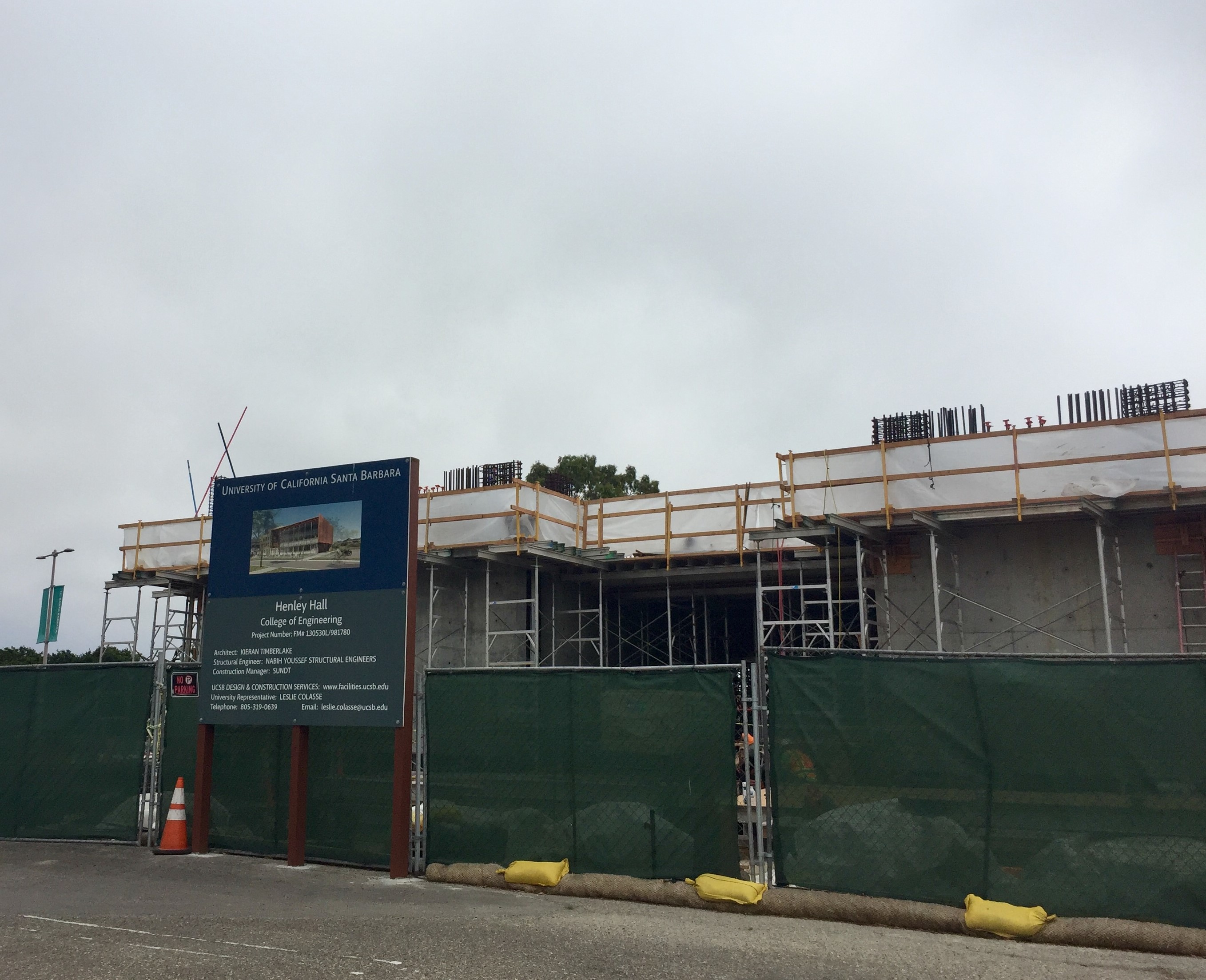In July 2018, the University of California, Santa Barbara embarked on the most sustainable building project in campus history. Upon completion, the $56 million Jeff and Judy Henley Hall will serve as the new home for UCSB’s prized Institute for Energy Efficiency.
The building receives its name from the Henley couple whose $50 million donation funded the majority of the project. Jeff Henley, vice chairman of Oracle, is an alumnus of UCSB and has been actively involved in bettering the campus and its programs.
Henley Hall is currently projected for completion in the fall of 2020 and once completed, will house the school’s Institute for Energy Efficiency (IEE), which is currently spread out in eight different buildings across campus. The program is world ranked, comprised of 50 faculty and 120 graduate students, and boasts five Nobel laureates on staff.
The development of new, sustainable sciences and technologies make the program valuable for not only the campus, but the future of the environment. In the past, the facilities dedicated to the institute were not adequate for the work it produced.
John Bowers, director of the IEE, told The College Post that recently, “many professors mentioned the lack of laboratory space to conduct research on energy efficiency.” This in turn led to Jeff Henley’s donation.
While the new facilities will allow for increased research efforts, Bowers said they will also “allow researchers in this area to interact and collaborate even more than now,” producing additional findings.
Not only will Henley Hall contribute to environmental sustainability through the work being done inside, but the building itself is designed with state-of-the-art sustainability features too. To reduce energy usage to as close to zero net energy as possible, many considerations were taken in respect to the lighting and ventilation systems involved.
Half of the building will not require air conditioning due to “solar shading studies and 3D models that were used to optimize shading and avoid solar gain during the warmest months of the year,” Leslie Colasse, project manager for Henley Hall, told The College Post.
Additionally, when air conditioning is required, it will come in the form of “active chilled beams incorporated into the mechanical design for optimal energy efficiency,” Colasse added.
Environmental considerations were also taken in respect to the building’s lighting. A glass curtain wall on one side “minimizes the need for electrical lighting because natural light is brought into the offices and laboratories on that side of the building,” Colasse said.
In addition to these specific features, Henley Hall will use only LED lighting, reclaimed water, and will be home to an open-air atrium with temperature sensitive windows. With these features the project aims to achieve the Leadership in Energy Efficiency and Design (LEED) platinum certification.
As the current state of the environment continues to deteriorate, Bowers believes it is more important now than ever to pay attention to sustainability measures.
“We are all seeing the impact of excessive energy consumption in depletion of valuable oil and gas supplies, diversion of valuable land for growing biofuels instead of food for humans, and greenhouse gas emission and its impact on climate change,” Bowers said.
While increased knowledge and awareness about sustainability efforts have recently produced a drop in greenhouse gas emissions to their lowest point since 1990, there is always more that can be done to protect the earth.
UCSB has constantly developed sustainable projects and currently ranks number 25 on The Princeton Review’s top green colleges worldwide. The Institute for Energy Efficiency itself is evidence of UCSB’s commitment to sustainability and the building of Henley Hall will increase the impact that the program can have on the future of sustainable technology.
As the completion of Henley Hall draws near, Bowers said there is no time like the present to be taking on these sustainability measures.
“We need to move quickly to invent, demonstrate, and optimize energy efficient solutions across our society and reduce the impact we have on planet Earth,” Bower said. “Now is the time to change our direction and implement much more efficient solutions.”
New Vanderbilt Working Group to Review Environmental Health, Safety



